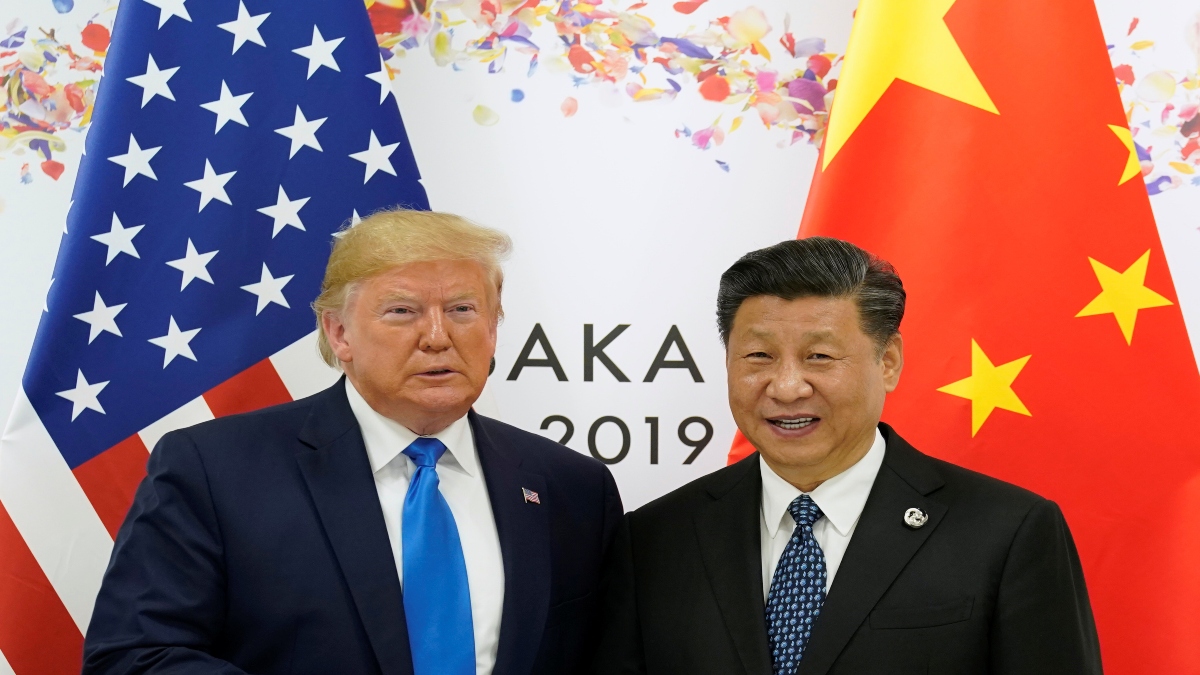Chinese President Xi Jinping is unlikely to attend the inauguration of President-elect Donald Trump on January 20 despite an initial invitation from Trump’s team shortly after the Election Day. This decision comes as the relationship between the US and China remains tense and the symbolic significance of such an event complicates diplomatic relations. While Trump’s invitation initially raised expectations that it could serve as a diplomatic gesture aimed at easing tensions, the chances of Xi attending seem slim.
Unprecedented invitation amid diplomatic strain
President-elect Trump’s team invited Chinese President Xi to attend the inauguration, but the Chinese government has not confirmed whether he will come. Usually, foreign leaders do not attend US presidential inaugurations except for special invited guests. The Chinese Embassy in Washington has not commented and Trump’s team also kept quiet when asked by the media.
While some Chinese officials, like the ambassador and embassy staff, are expected to attend, Xi’s absence shows that the event will be more of a formality than a chance for real diplomatic discussion. This decision comes at a time when US-China relations are tense with ongoing issues like trade wars and cybersecurity problems.
Bilateral relations at a crossroads
Trump’s invitation for Xi to attend the inauguration surprised both Beijing and Washington. According to South China Morning Post, experts in both countries said this was unusual and might show a desire to improve US-China relations. However, with many ongoing issues between the two, like trade wars intellectual property theft and military tensions, it is unlikely that Xi will attend. Chinese officials, who are used to formal diplomatic rules, may see Trump’s informal invitation as an unusual move that could lead to misunderstandings.
Impact Shorts
More ShortsCyber espionage and telecom breach
Adding fuel to the fire, US intelligence agencies recently revealed a major cybersecurity breach involving Chinese hackers. According to CBS News, the hack, which affected US telecom companies, including those used by high-ranking officials like Vice President-elect JD Vance, highlights the increasingly aggressive nature of the cyber warfare between the two nations.
The breach, coupled with the ongoing tension over trade tariffs, has made it difficult for Xi to justify attending an event with a US president who has been a vocal critic of China’s economic and cyber policies. In fact, the notion of Xi attending an inauguration under such strained circumstances could appear as an endorsement of policies that China finds increasingly untenable, particularly as US sanctions and tariffs on Chinese goods remain on the table.
Trump’s second term and the China dilemma
With Trump’s second term on the horizon, the question arises: will he maintain the same aggressive posture towards China, or will he seek to de-escalate tensions? During his first term, Trump’s policy towards China was characterised by tariffs, trade wars and combative rhetoric. According to CBS News, his team included strong proponents of a hardline approach, such as Senator Marco Rubio, who was appointed as the new Secretary of State and has long been a vocal critic of China’s economic practices and human rights violations. Given this, it seems likely that Trump’s approach to China will continue to emphasise economic competition and military containment.
However, Trump’s second term is also expected to witness some internal divisions within his administration regarding China policy. While some within his team are pushing for even more stringent measures, others are advocating for a more pragmatic approach to ensure that the bilateral relationship does not spiral into open conflict. The challenge for Trump’s team will be balancing these competing factions and formulating a coherent strategy towards China that is both aggressive enough to satisfy his hawkish allies and flexible enough to avoid a total breakdown in relations.
Trade wars and Taiwan
Trade remains one of the most significant sources of tension in US-China relations. Trump has frequently threatened to impose further tariffs on Chinese imports. Such drastic measures could exacerbate the trade war that has already resulted in economic losses for both countries. Despite these threats, there are few details about Trump’s exact plans for China in his second term, leading to uncertainty among both US businesses and Chinese officials. The uncertainty surrounding the trade relationship further complicates any diplomatic overtures such as the invitation to Xi for the inauguration.
Additionally, Taiwan continues to be a flashpoint in US-China relations. According to a South China Morning Post report, Trump’s controversial statements during his campaign, including his call for Taiwan to pay the US for its defence, have raised alarms in Beijing. Taiwan’s status as a self-ruled democratic island that China considers a breakaway province remains one of the most sensitive issues in the bilateral relationship. Beijing has consistently warned that any attempts to challenge Taiwan’s status could result in military conflict, making it one of the most dangerous flashpoints between the two powers.
In this context, Beijing’s decision to not send Xi to the inauguration could be viewed as a symbolic rejection of the continued diplomatic tension over Taiwan, trade and other issues. While Trump has expressed his desire for a “good relationship” with China, the absence of Xi at his inauguration signals that Beijing is unwilling to fully embrace Trump’s terms without addressing the critical issues that have strained the bilateral relationship.
Trecherous diplomatic terrain
While Trump’s invitation was seen by some as a gesture of goodwill, the reality is that the US-China relationship remains fraught with issues that will likely overshadow any attempts at diplomatic rapprochement. For now, the absence of Xi at Trump’s inauguration is yet another indication of the deep challenges facing US-China relations in the years to come.
)